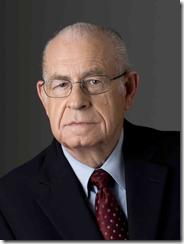Let languages die.
/A man in Hawaii is facing criminal charges for blocking the construction of a telescope on a mountaintop. His trial is being delayed because even though he speaks perfect English, he is insisting on being tried in Hawaiian, which happens to be the official language of Hawaii.
The only problem:
No judge speaks Hawaiian, and only about 8,000 people in the world speak the language, so finding jurors who speak the language would be almost impossible. So the man is insisting that the trial be conducted through an interpreter.
The man's guilt or innocence is not my concern. My bone of contention lies in the NPR report on this case. Specifically, this exchange between NPR host Rachel Martin and the defendant Kahookahi Kanuha:
MARTIN: It's my understanding that more than a generation ago, the Hawaiian language was almost gone. It had almost been wiped out.
KANUHA: Yes.
MARTIN: What brought it back? What's to account for the resurgence?
KANUHA: Yeah, so in the early 1980s, actually, it was estimated that there were less than 50 speakers under the age of 18. It was almost guaranteed - approximately guaranteed - that within - within 20 to 30 years, perhaps, the language would be dead. And so what they did was they implemented a preschool system, and it's known as Aha Punana Leo. And as the kids graduated from preschool, those families wanted them to continue their education in Hawaiian language. And that's what created that push and the pressure for the implementation of Hawaiian immersion programs and ultimately, within the last 30 years, we have taken those numbers from less than 50 to about 8,000 or so.
I will never understand the desire to preserve languages and fight against their extinction.
Languages are not birds or animals or plants. They are not integral parts of an ecosystem. They do not carry the potential for life-saving medicines. They do not preserve biodiversity.
Languages are human constructs. They are a means of communication that developed differently across the globe only because of geographic limitations on humankind thousands of years ago. They are not in need of preservation. In fact, I think they are in need of eradication. The sooner human begins drill down to one worldwide language, the better off we will be. The ability to communicate freely and openly to anyone in any corner of the globe would be a remarkable feat of human progress.
The process of achieving a single, worldwide language begins by allowing languages to die rather than spending time and money preserving them.
“Of the estimated 7,000 languages spoken in the world today, linguists say, nearly half are in danger of extinction and are likely to disappear in this century. In fact, they are now falling out of use at a rate of about one every two weeks.
Some endangered languages vanish in an instant, at the death of the sole surviving speaker. Others are lost gradually in bilingual cultures, as indigenous tongues are overwhelmed by the dominant language at school, in the marketplace and on television.
”
The good news in this report is that languages are dying at a rapid clip. But the New York Times - and many other publications - use words like endangered and extinction to describe the precarious state of languages, as if their elimination hurts the planet or humankind.
It doesn't. It only serves as one small step in bringing us closer.
It's important to note that I am not promoting the active eradication of languages. I'm not looking for people to intentionally eliminate languages. I just don't think them worthy of preservation.
This also doesn't mean that I am overlooking one of the primary agents in the elimination of languages. The genocide of the Native Americans of North America, for example, wiped out hundred of languages in the process. I am aware that all too often, the eradication of a language was accomplished through forced subjugation and genocide. Obviously, this is not the kind of action for which I am advocating.
Languages should die of natural causes. And they are.
A report in Science magazine from 2014 indicates that the primary agent responsible for the eradication of languages today is economic growth. As previously isolated and otherwise struggling communities of people begin to interact with the world economically in order to raise their standard of living, they begin to adopt the primary language of commerce, and over time, their original language falls away and dies.
This makes sense. People want to be able to communicate as fluidly and inexpensively as possible. They want to understand and be understood. When you realize that participation in world markets will improve your lives of your future generations, you will engage in that market as fully as possible.
This includes language.
My hope - and my expectation - is that somewhere in the distant future, humankind will continue to winnow down from the approximately 7,000 languages today to a handful of languages and perhaps even one. And I don't care what language we eventually settle on. I'm not looking to preserve English as the language of the world. Whichever language rises to the top is fine by me.
The language is irrelevant. It's singularity is paramount.
The sooner human beings across the globe share a common tongue and can speak without barrier or misunderstanding, the better off we will be.
Don't seek the eradication of language. Just don't invest in its preservation. Spend your time and money on more important matters. Implementing a preschool program on the island of Hawaii in order to teach children a language that was nearly extinct and is useless outside of Hawaii strikes me as a terrible waste of resources.
Oh, and in case you were curious, Kahookahi Kanuha was granted an interpreter at his trial, and last month he was found not guilty of obstruction.
I'm happy Kanuha isn't going to jail. If you read the reports from the trial, it's clear that he was acting with noble intent.
I just hope he doesn't use his newfound freedom to promote a language that clearly wants to die.



